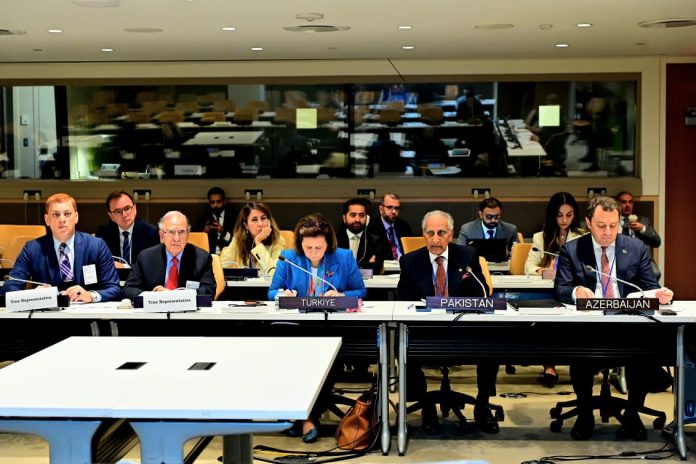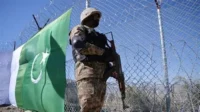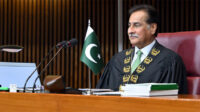The Organization of Islamic Cooperation (OIC) Contact Group on Jammu and Kashmir has called for intensified efforts to achieve a peaceful, equitable, and sustainable resolution of the Kashmir dispute in line with relevant UN Security Council resolutions and the wishes of the Kashmiri people.
The Contact Group met on the sidelines of the 80th session of the UN General Assembly in New York. The session was chaired by OIC Deputy Secretary General, Ambassador Yusuf Al-Dubai’e, and attended by senior delegates and dignitaries from Turkiye, Azerbaijan, Saudi Arabia, Pakistan, and Niger.
OIC Secretary-General, Hissein Brahim Taha, in his statement, stressed that a just and lasting solution of the Jammu and Kashmir dispute is essential for peace and stability in South Asia and beyond. He warned that the region’s volatility underscored its status as a nuclear flashpoint and urged the international community to take serious note of the situation.
Ambassador Al-Dubai’e, who has visited Azad Jammu and Kashmir multiple times as the OIC Special Envoy on Jammu and Kashmir, briefed participants on his engagements with Kashmiri leadership, including successive AJK administrations and the All Parties Hurriyat Conference.
Pakistan’s Deputy Prime Minister and Foreign Minister, Ishaq Dar, in a statement read by Minister of State Tariq Fatemi, highlighted the catastrophic human rights situation in Indian illegally occupied Jammu and Kashmir (IIOJK). He said India had pursued a systematic campaign to disenfranchise, disempower, and disinherit Kashmiris since its unilateral actions of 5 August 2019. He cited demographic engineering, gerrymandering, manipulation of voter rolls, and new domicile and land laws as part of New Delhi’s colonial project in gross violation of international law.
Dar reiterated that the Kashmir dispute remained the root cause of instability in South Asia. He urged the OIC to use its political and economic leverage to press India to end repression, release political prisoners, repeal draconian laws, withdraw occupation forces from civilian areas, and allow impartial investigations into human rights abuses.
Turkiye’s Deputy Foreign Minister, Ambassador Berris Ekinci, described the Kashmir dispute as one of the oldest unresolved conflicts on the UN agenda. She reaffirmed Ankara’s solidarity with Kashmiris, stressing that a peaceful and lasting solution reflecting their aspirations was vital for regional stability.
Azerbaijan’s Deputy Foreign Minister, Ambassador Elnur Mammadov, emphasized the “unbreakable” bond between Pakistan and Azerbaijan and pledged to raise awareness of Indian atrocities in Kashmir. He called upon India to honor its bilateral and multilateral commitments, including UN resolutions.
The Saudi delegate urged the OIC to devise a comprehensive strategy to help resolve the Kashmir dispute through peaceful dialogue and to ensure the Kashmiri people’s right to self-determination.
Civil society representatives also presented their perspectives. Dr. Farhan Mujahid Chak, Secretary-General of Kashmir Civitas, highlighted the growing alliance between Hindutva forces and Zionism, calling it a systemic global threat. He listed six urgent dangers emanating from the current BJP regime: Hindutva-Zionist alliance, infiltration in Muslim states, neo-imperial exploitation in Africa, nuclear brinkmanship, proliferation of hazardous materials, and global Islamophobia. He warned that India’s actions constituted grave breaches of international humanitarian law and must be confronted collectively.
Dr. Ghulam Nabi Fai, Secretary-General of the World Kashmir Awareness Forum, said the Kashmiri struggle was about dignity, survival, and self-determination. He linked Kashmir’s plight to Palestine, saying justice for Kashmir was equally overdue. He exposed India’s economic warfare against Kashmiris, including the deliberate strangulation of the fruit industry by blocking trucks on highways.
Dr. Fai proposed six concrete steps for the OIC: keeping Kashmir high on the UN agenda, promoting mediation with Kashmiri participation, providing safe havens for the diaspora, granting scholarships to Kashmiri students, pressing India to rescind draconian laws—especially the domicile law designed to alter demography—and demanding the unconditional release of political prisoners including Yasin Malik, Shabbir Shah, Masarrat Aalam Butt, and Aasiya Andrabi.
Concluding, Dr. Fai urged the OIC to match its moral duty with political action, stressing that only then would the commitment to justice for the people of Jammu and Kashmir be fulfilled.






